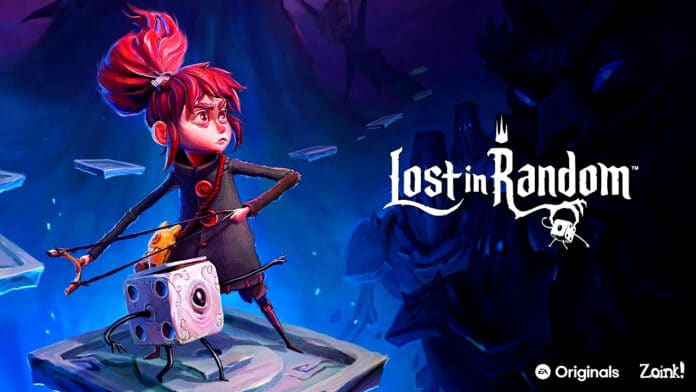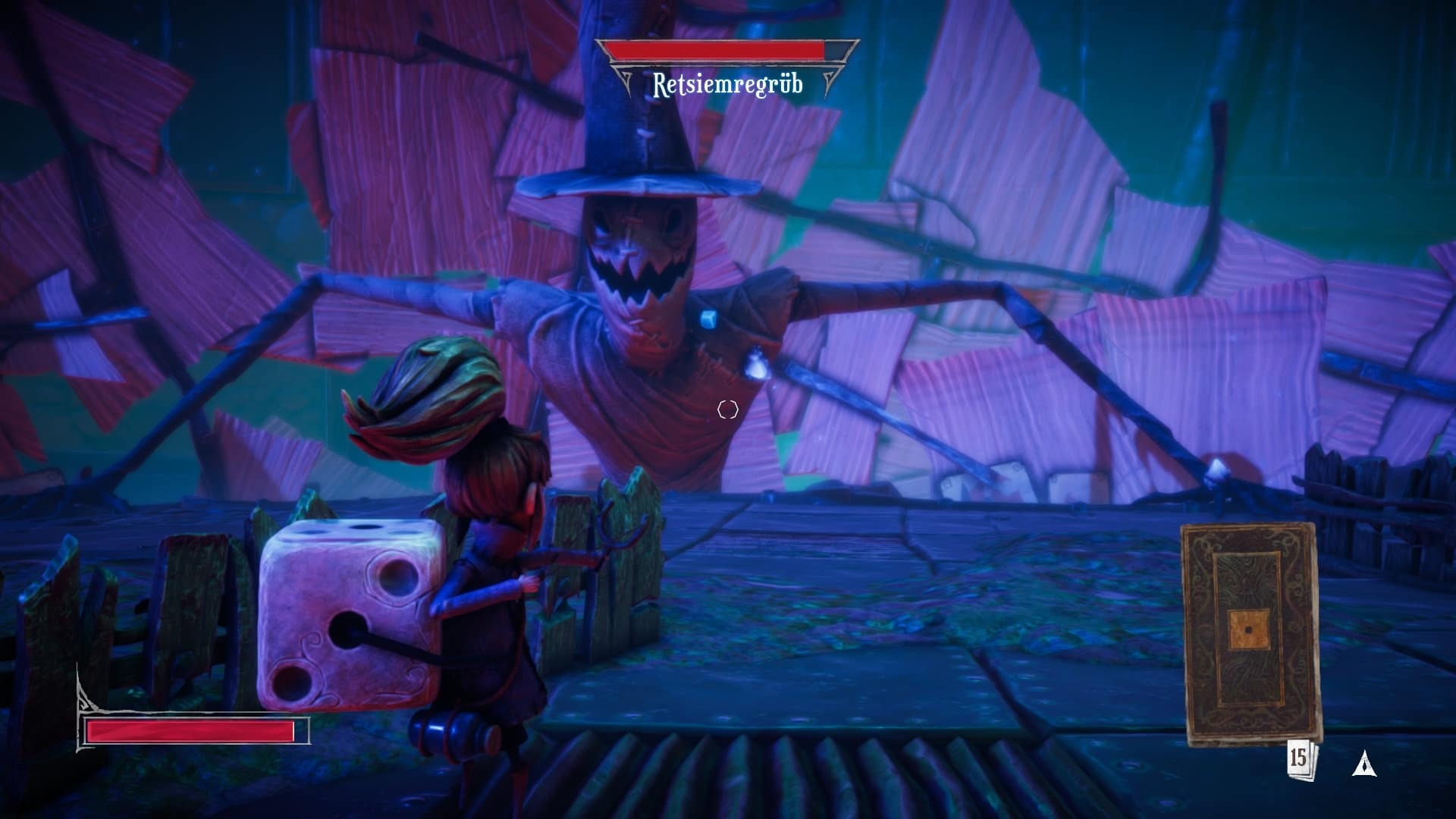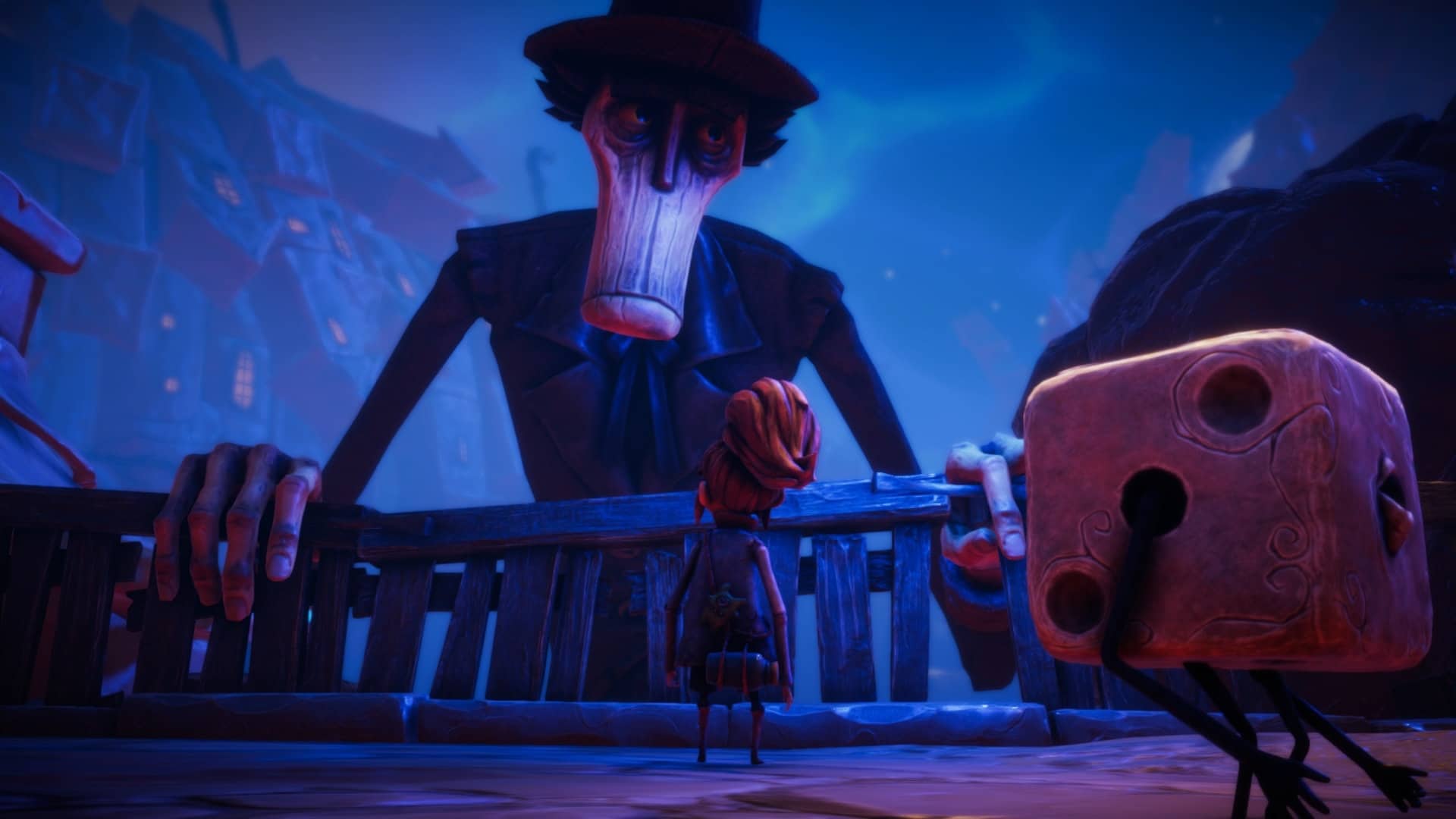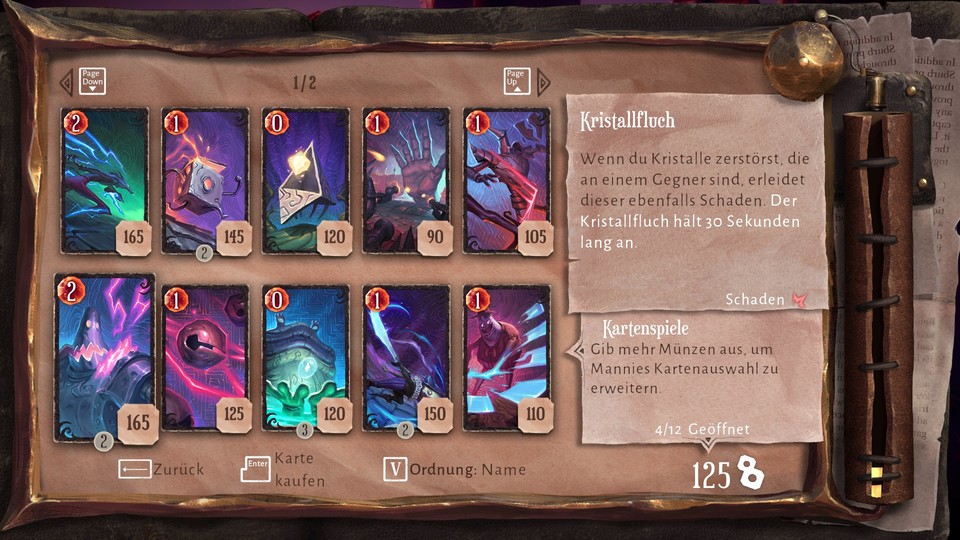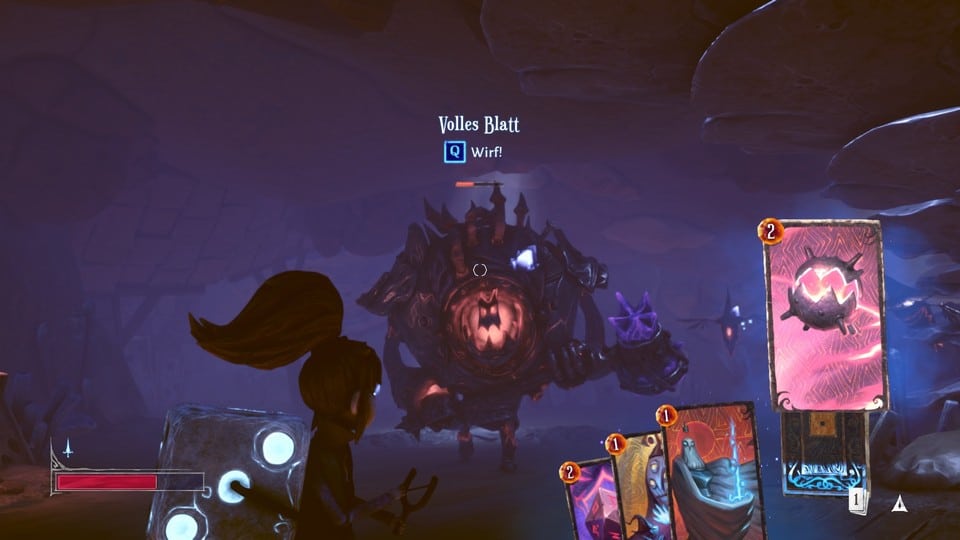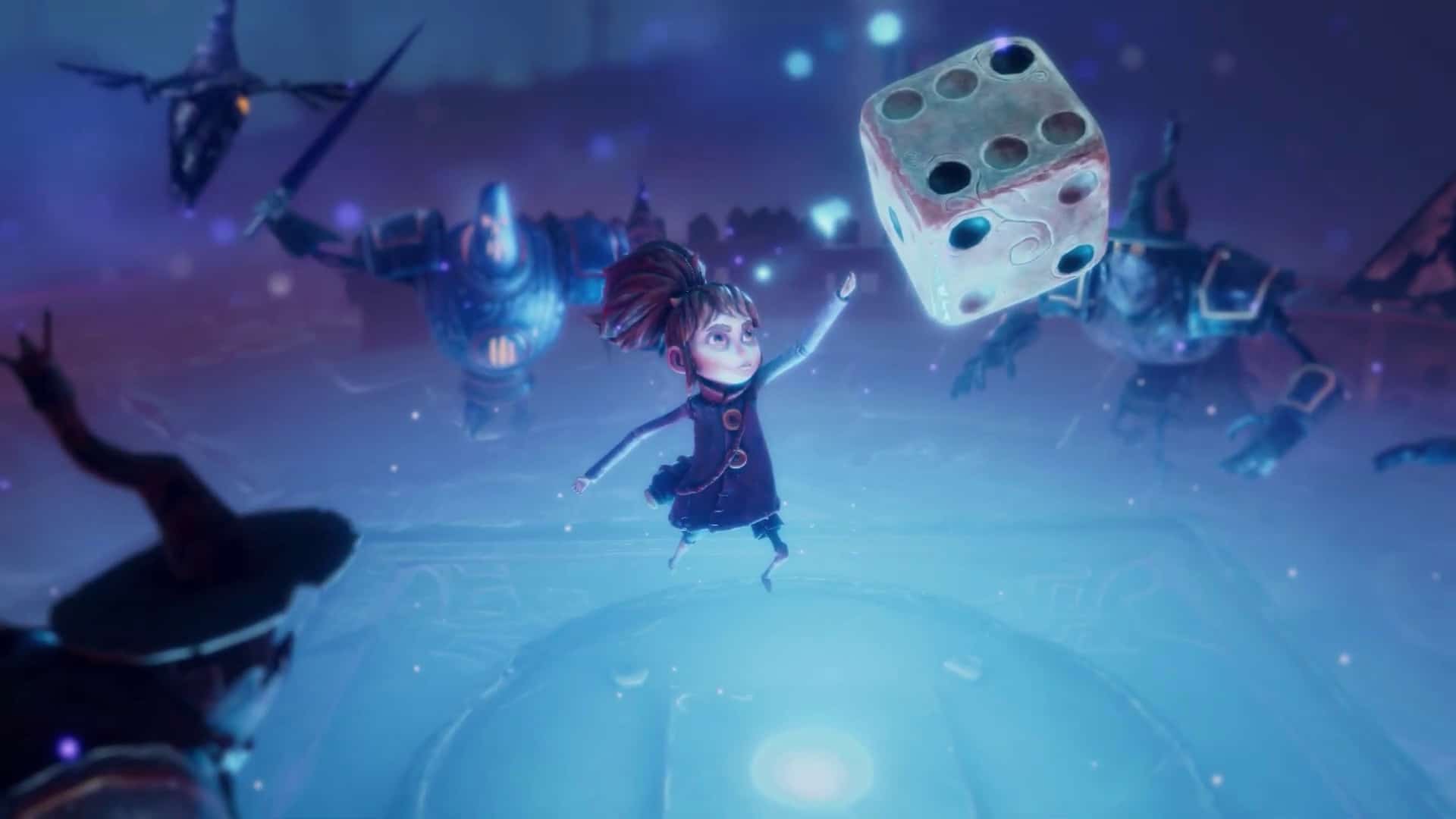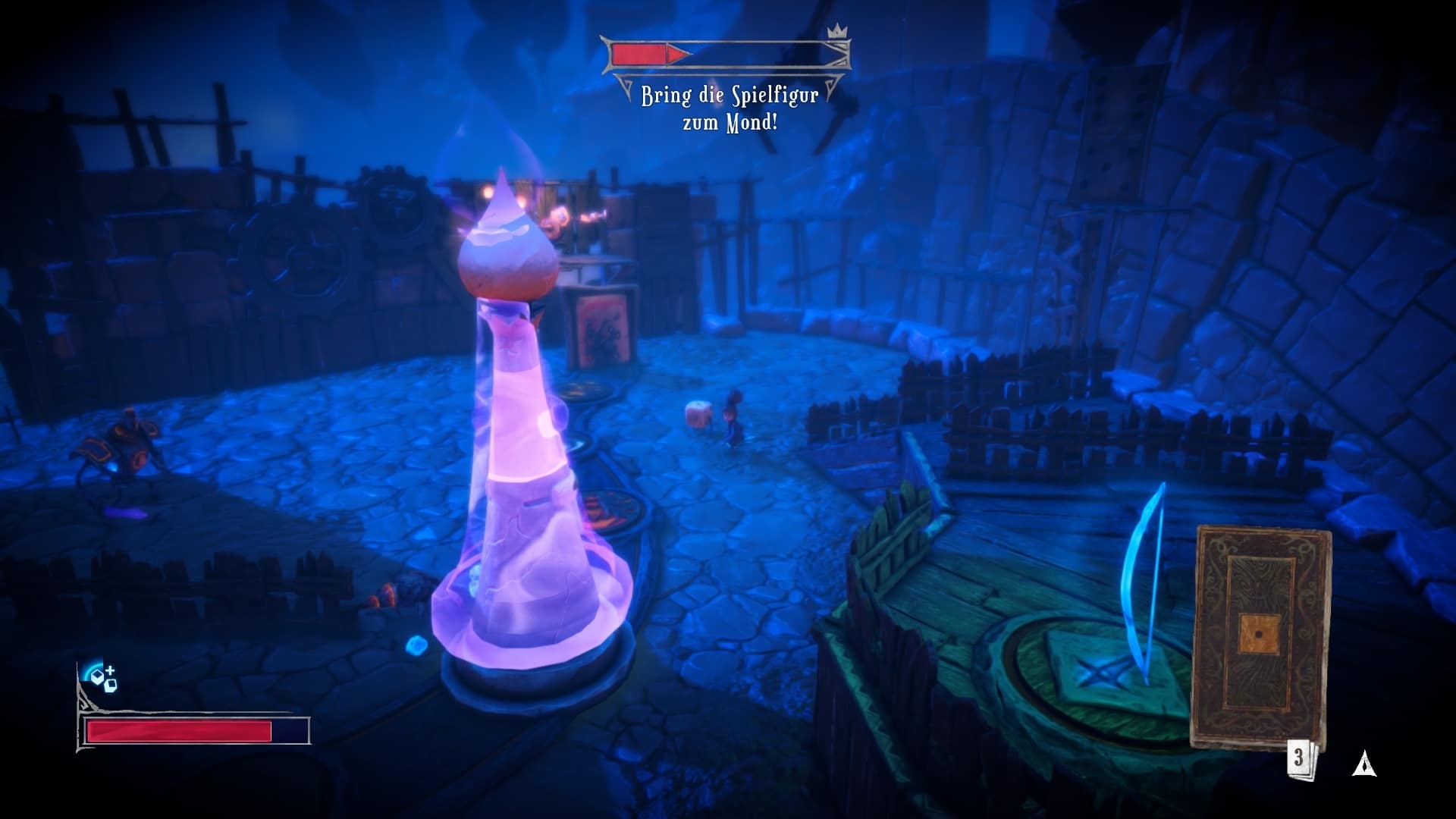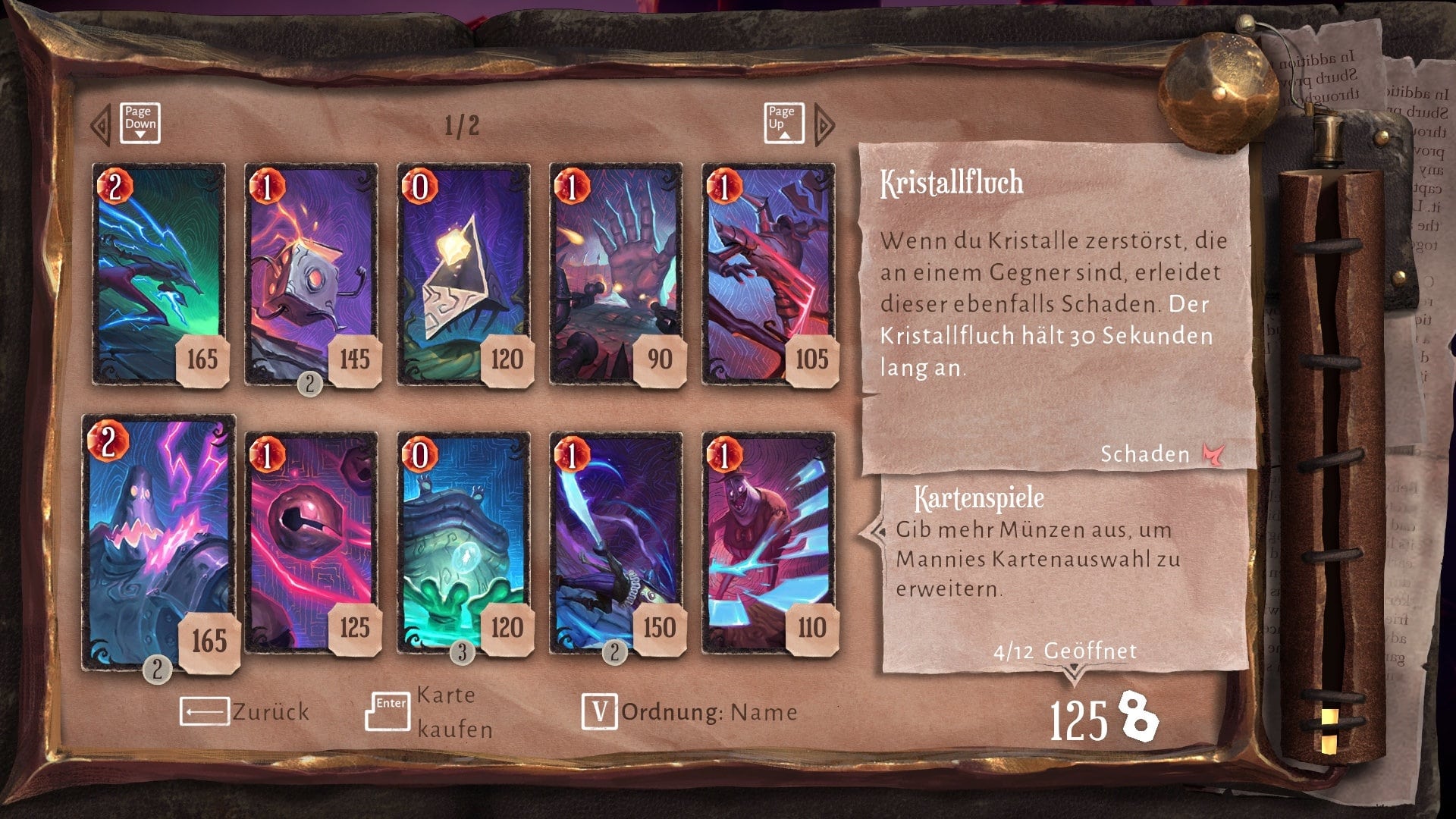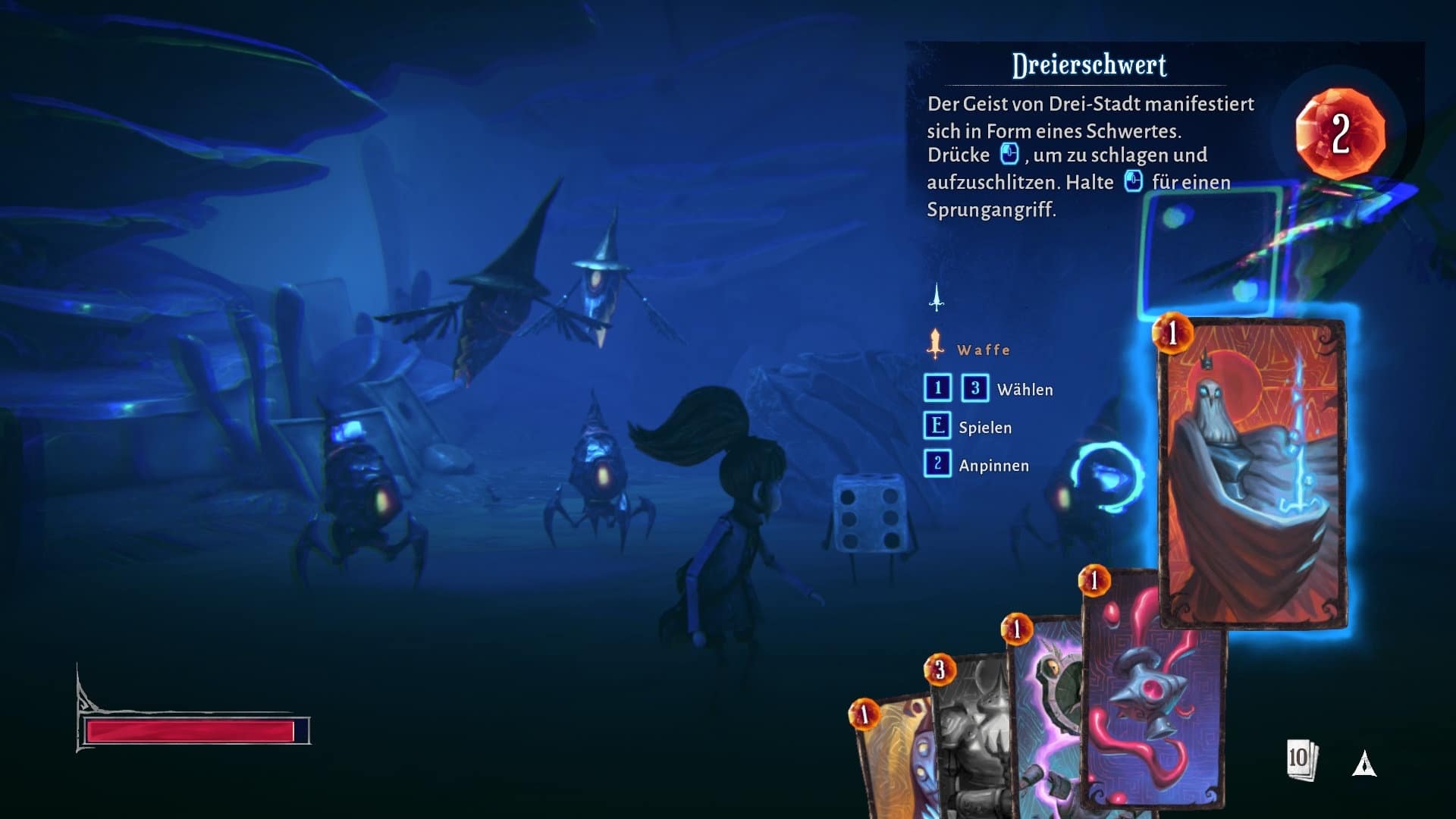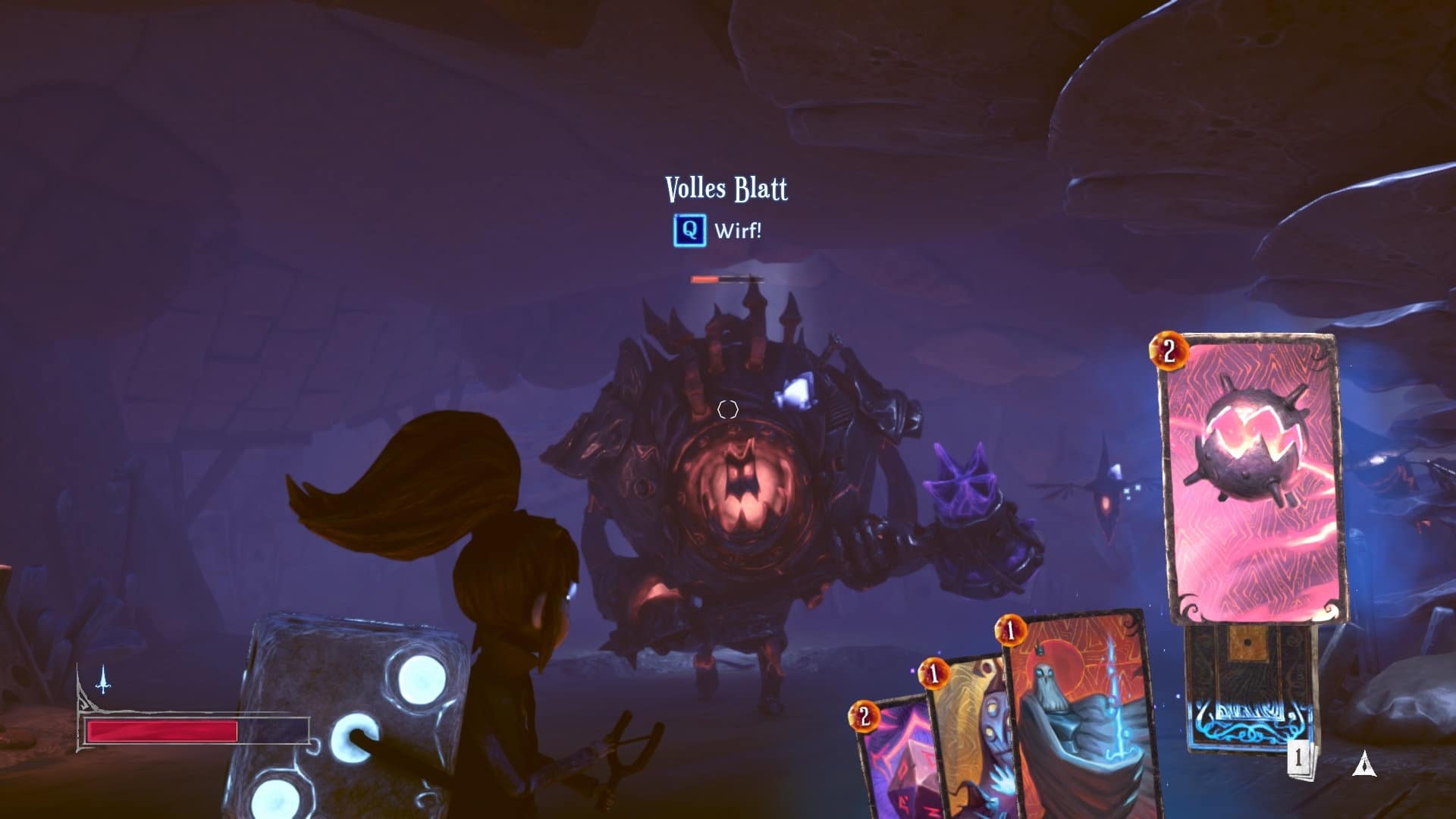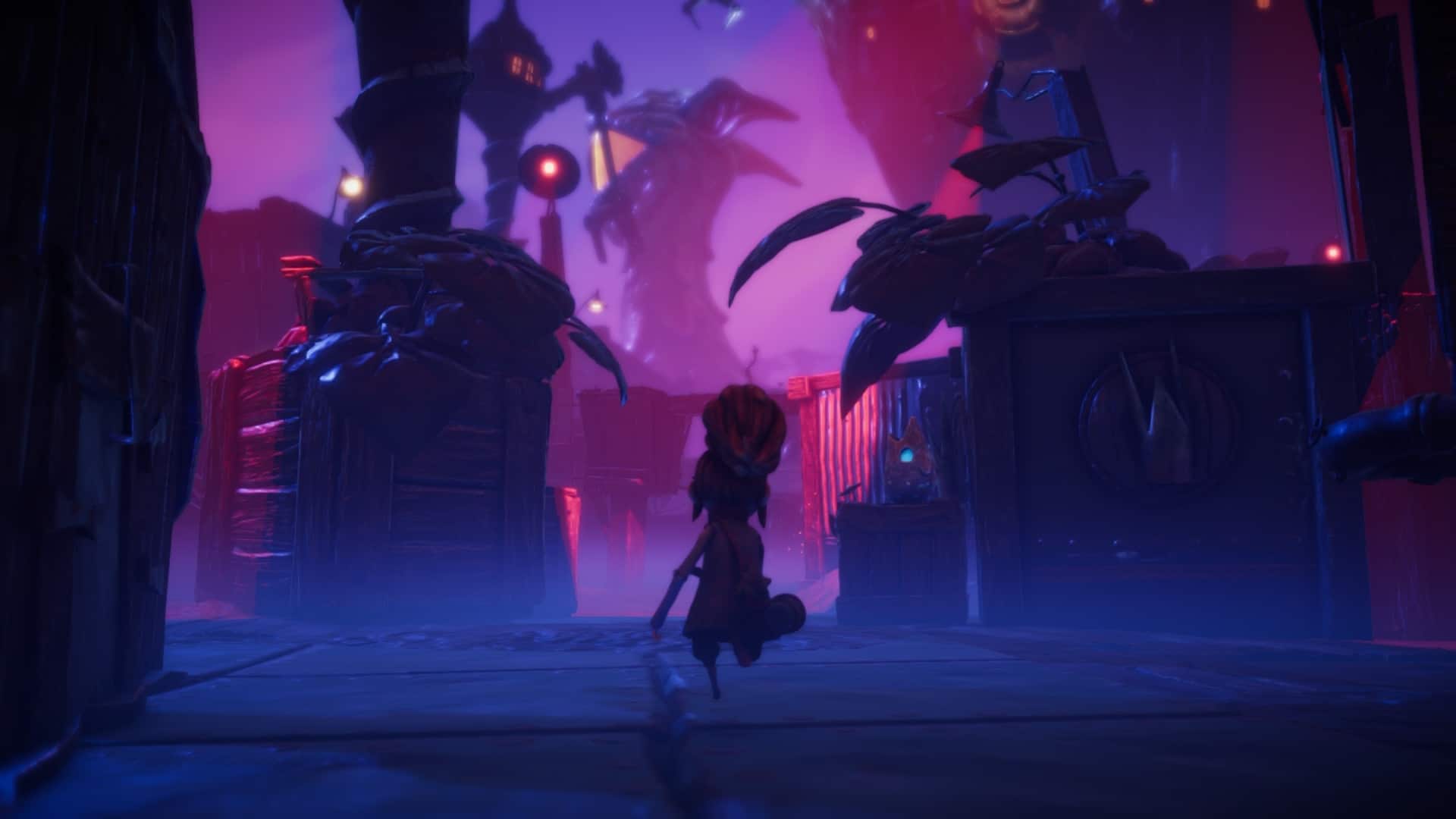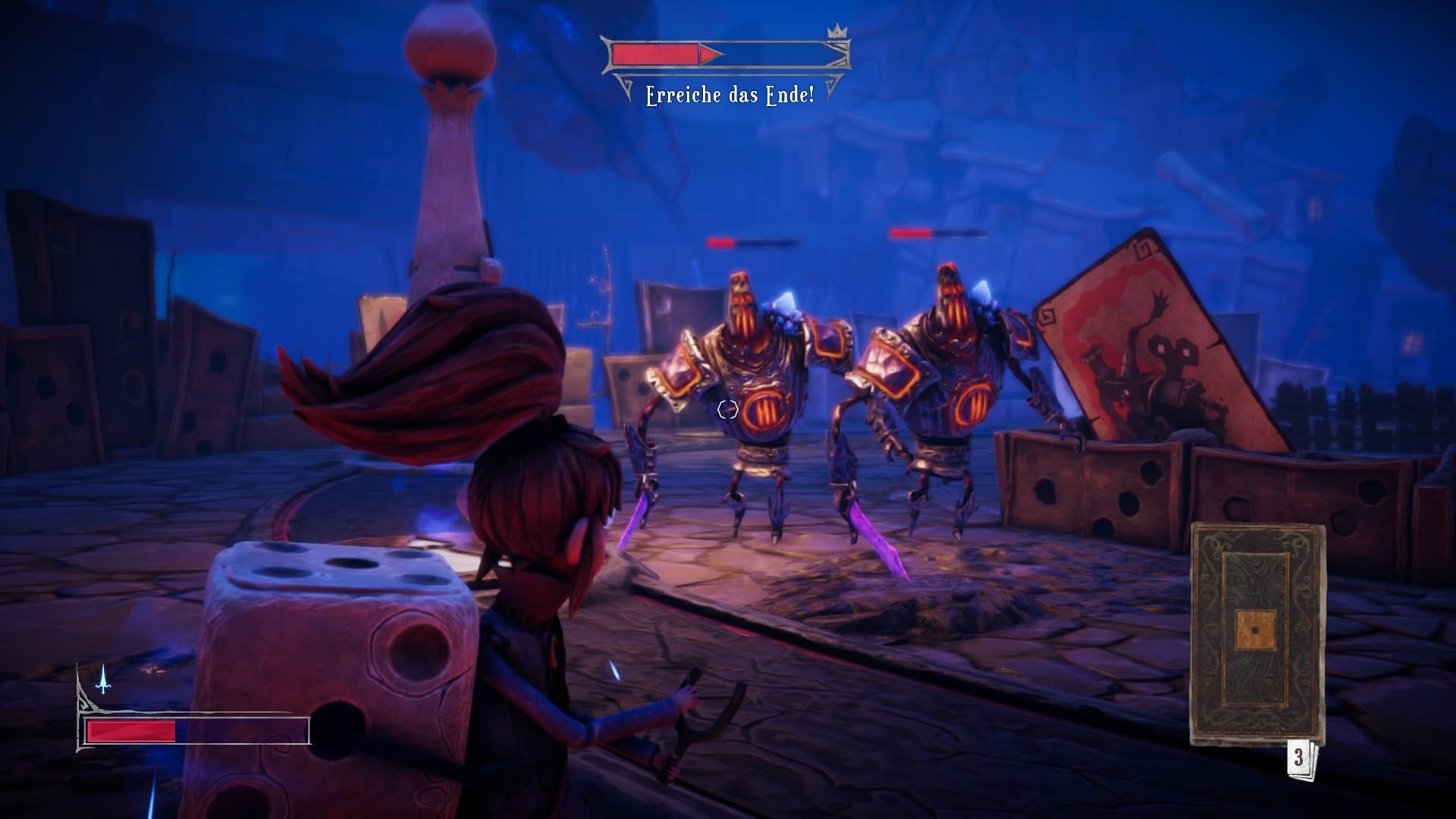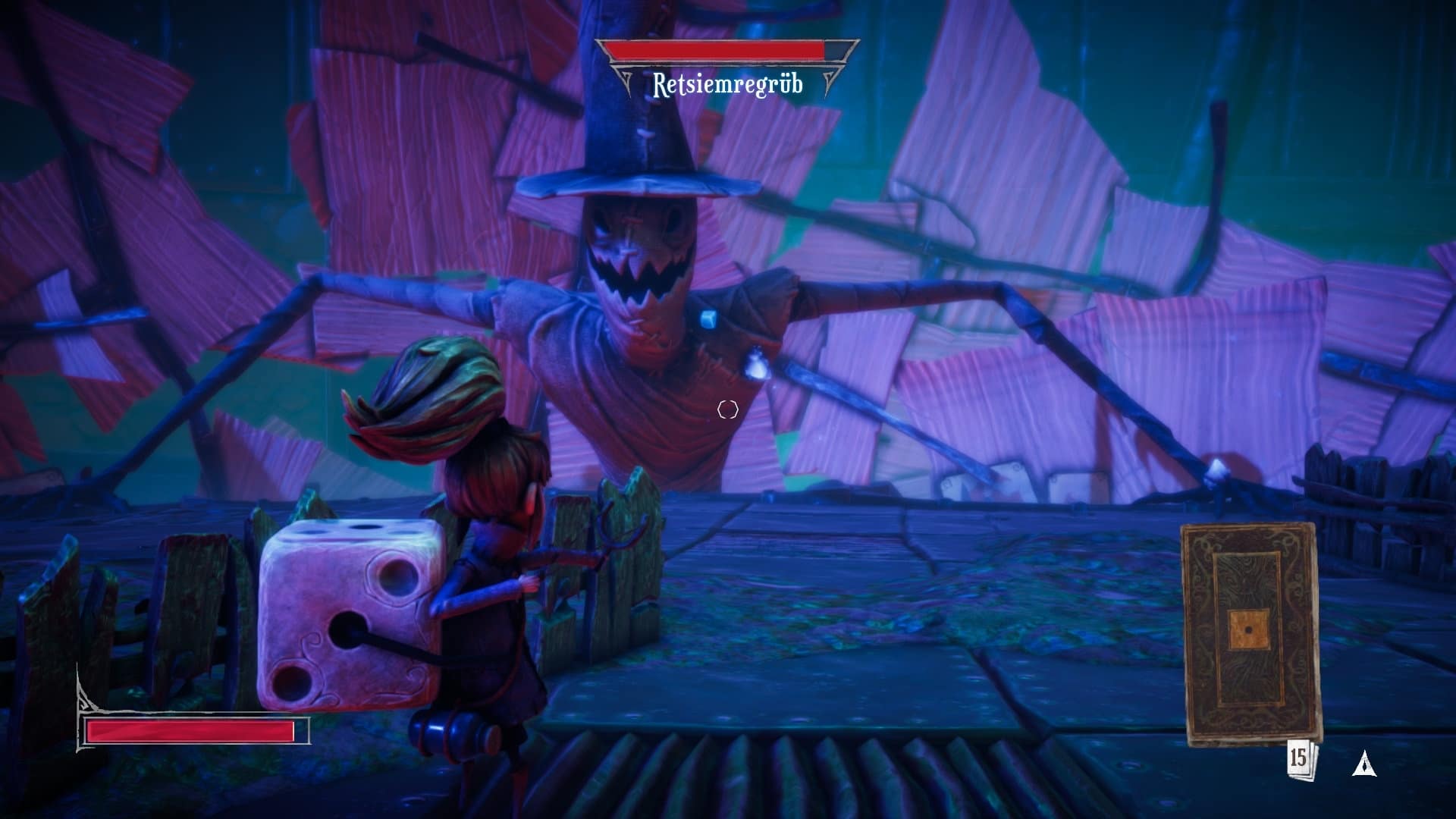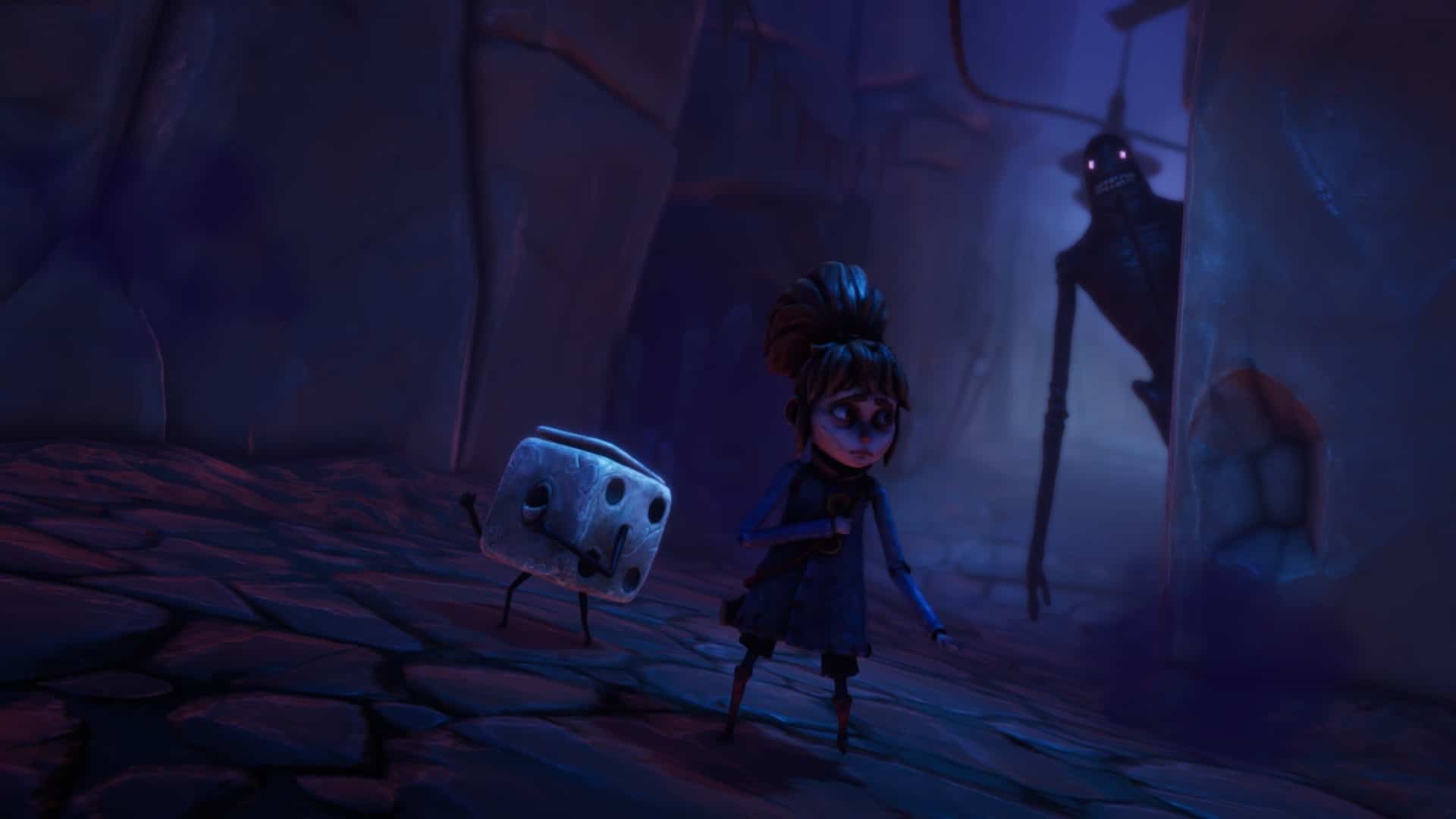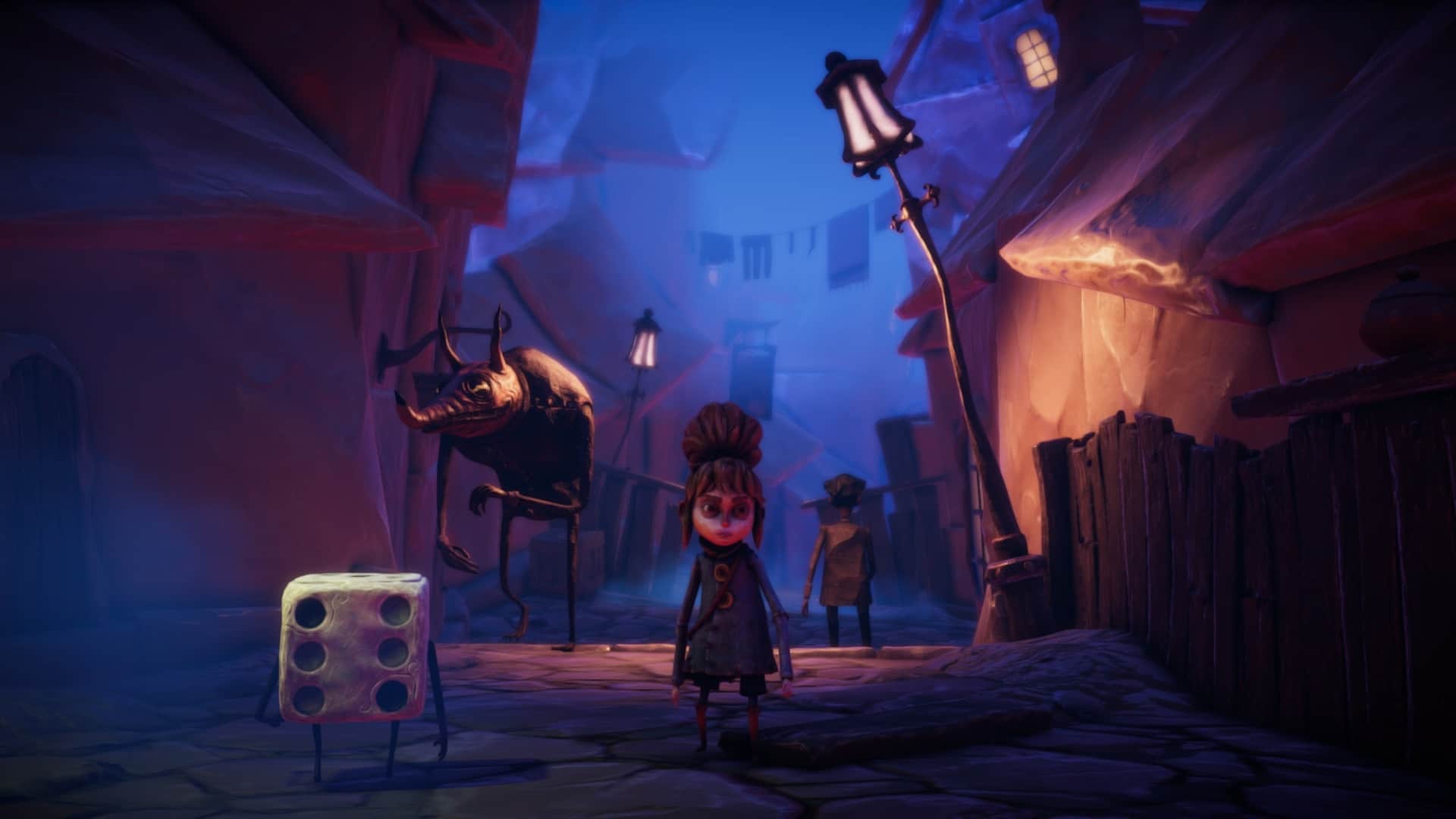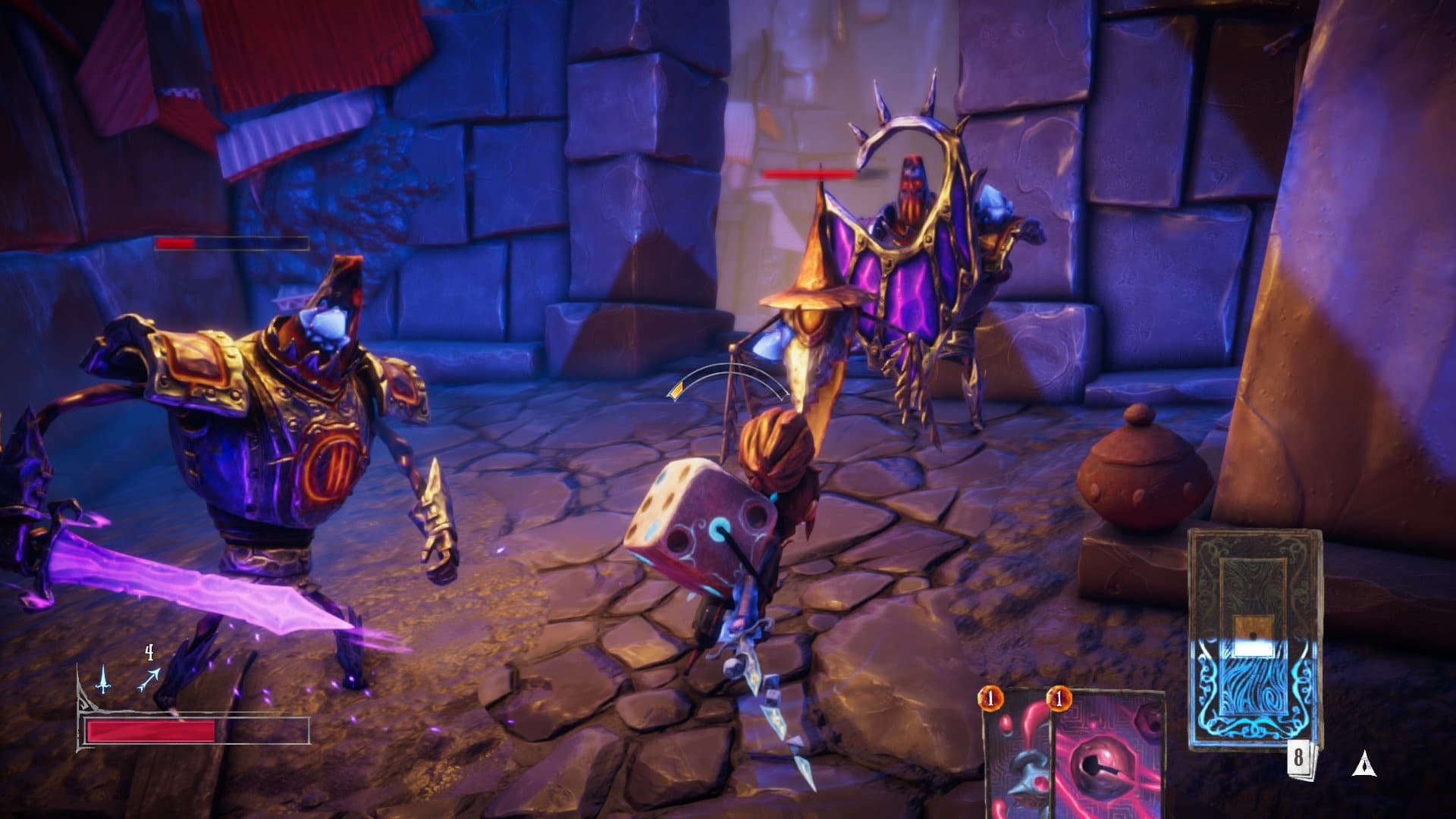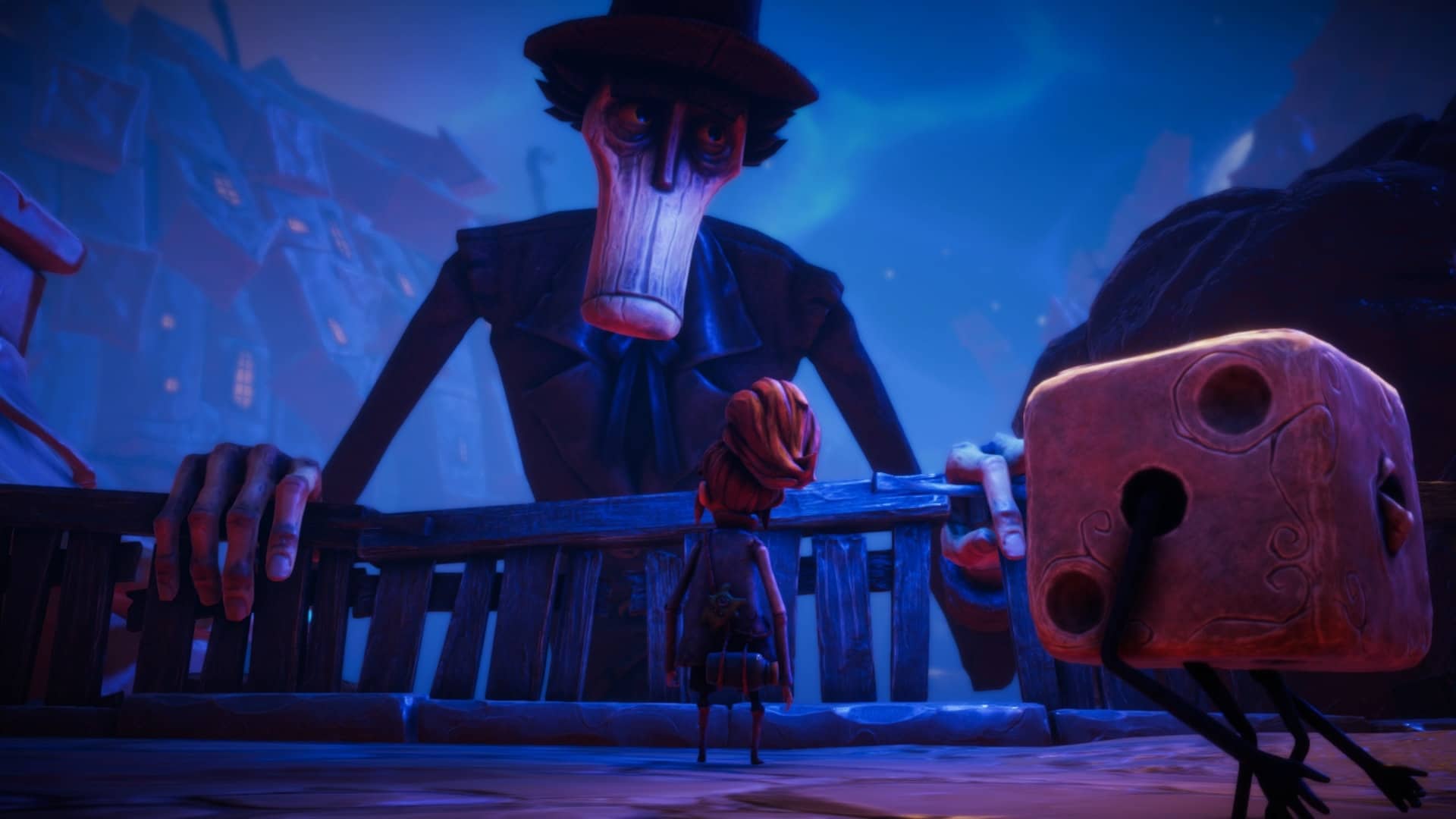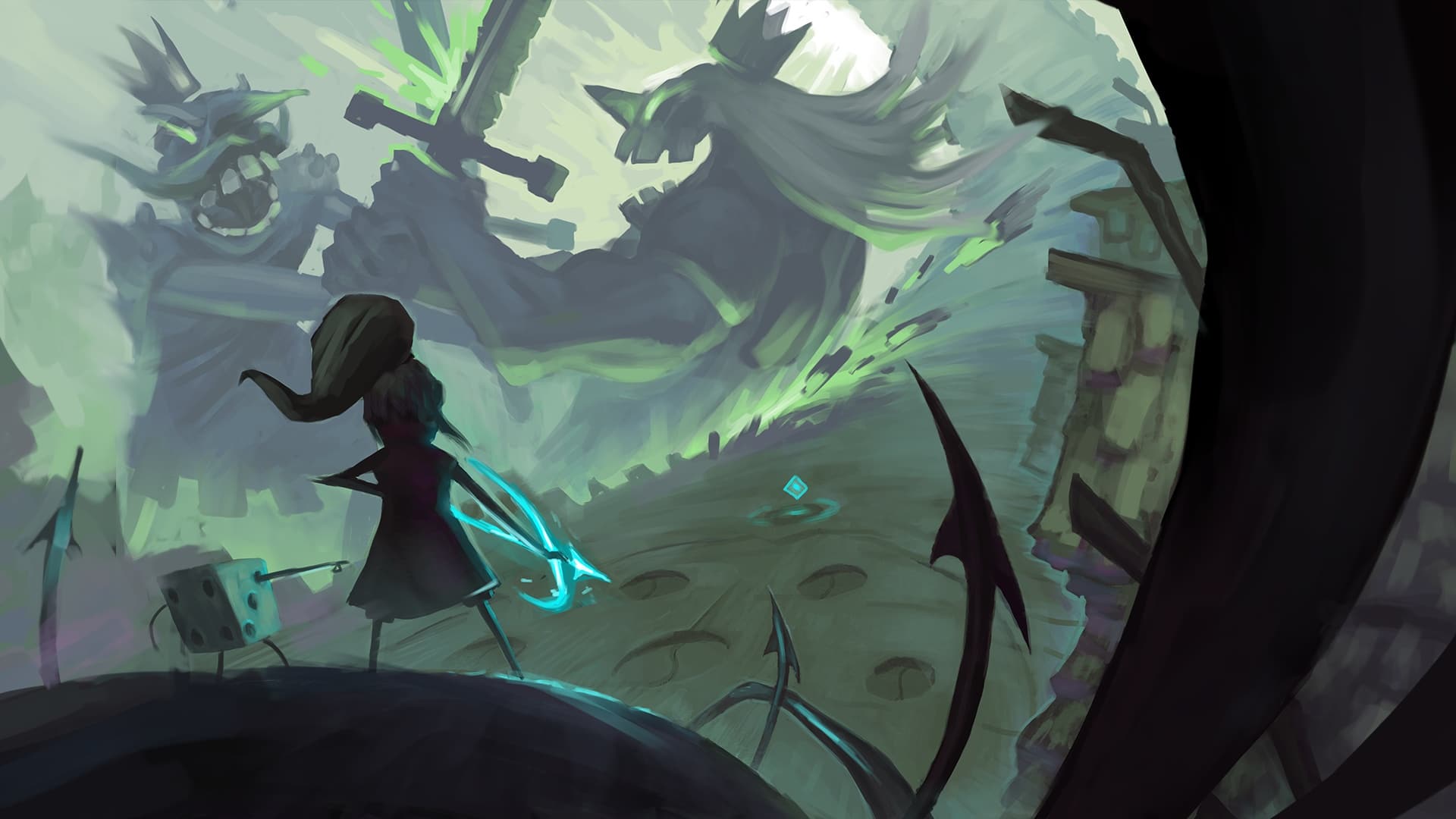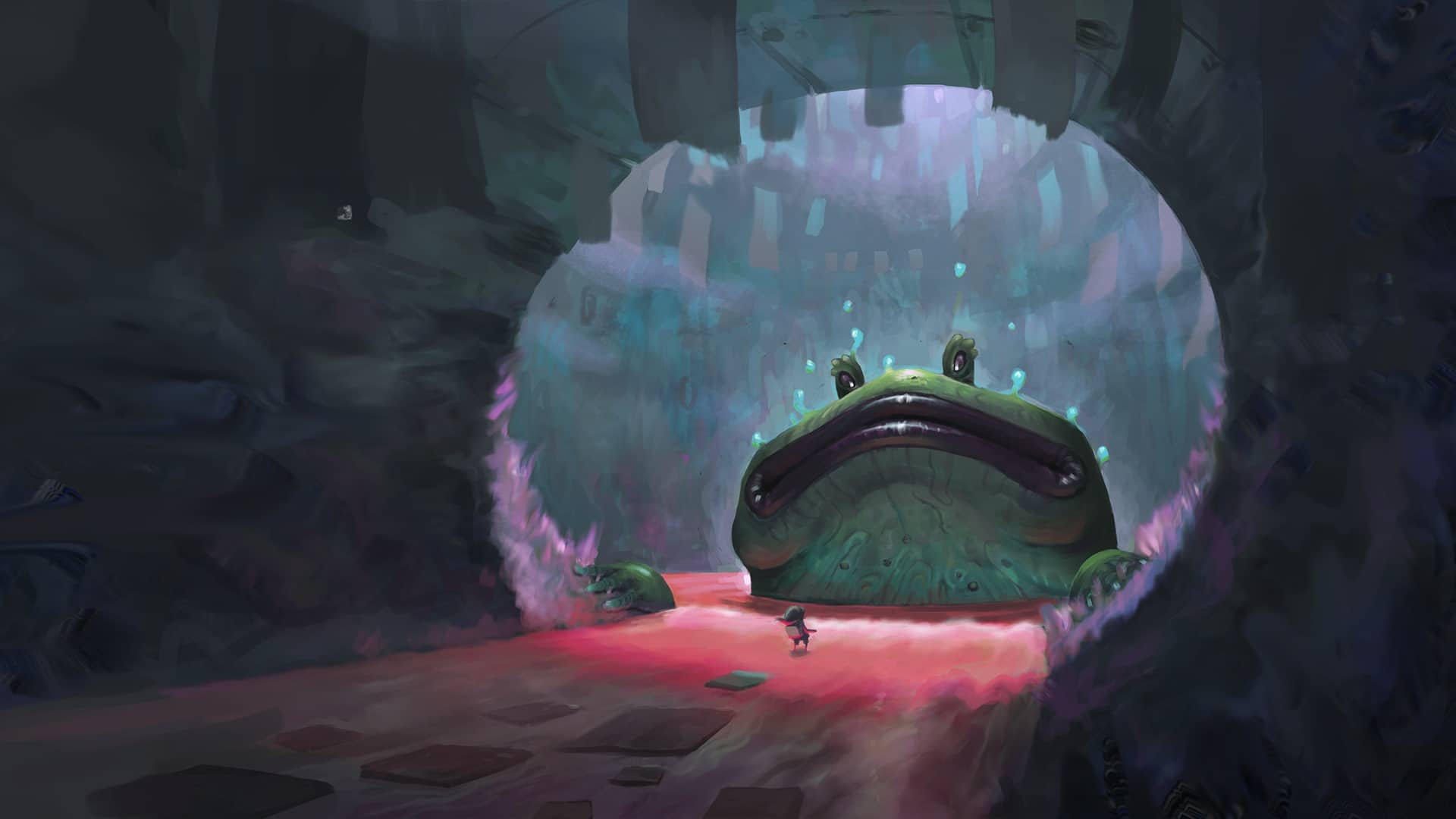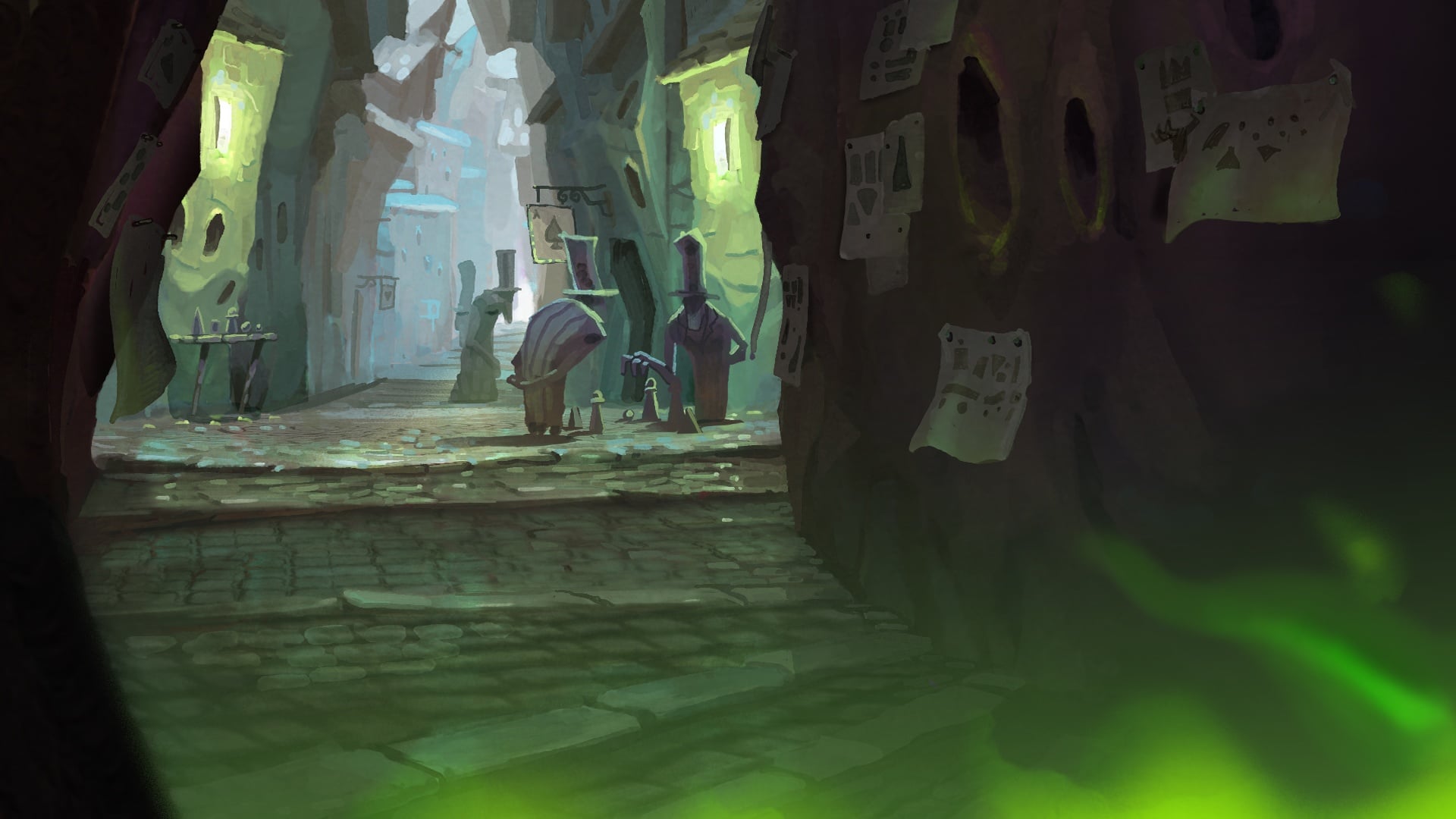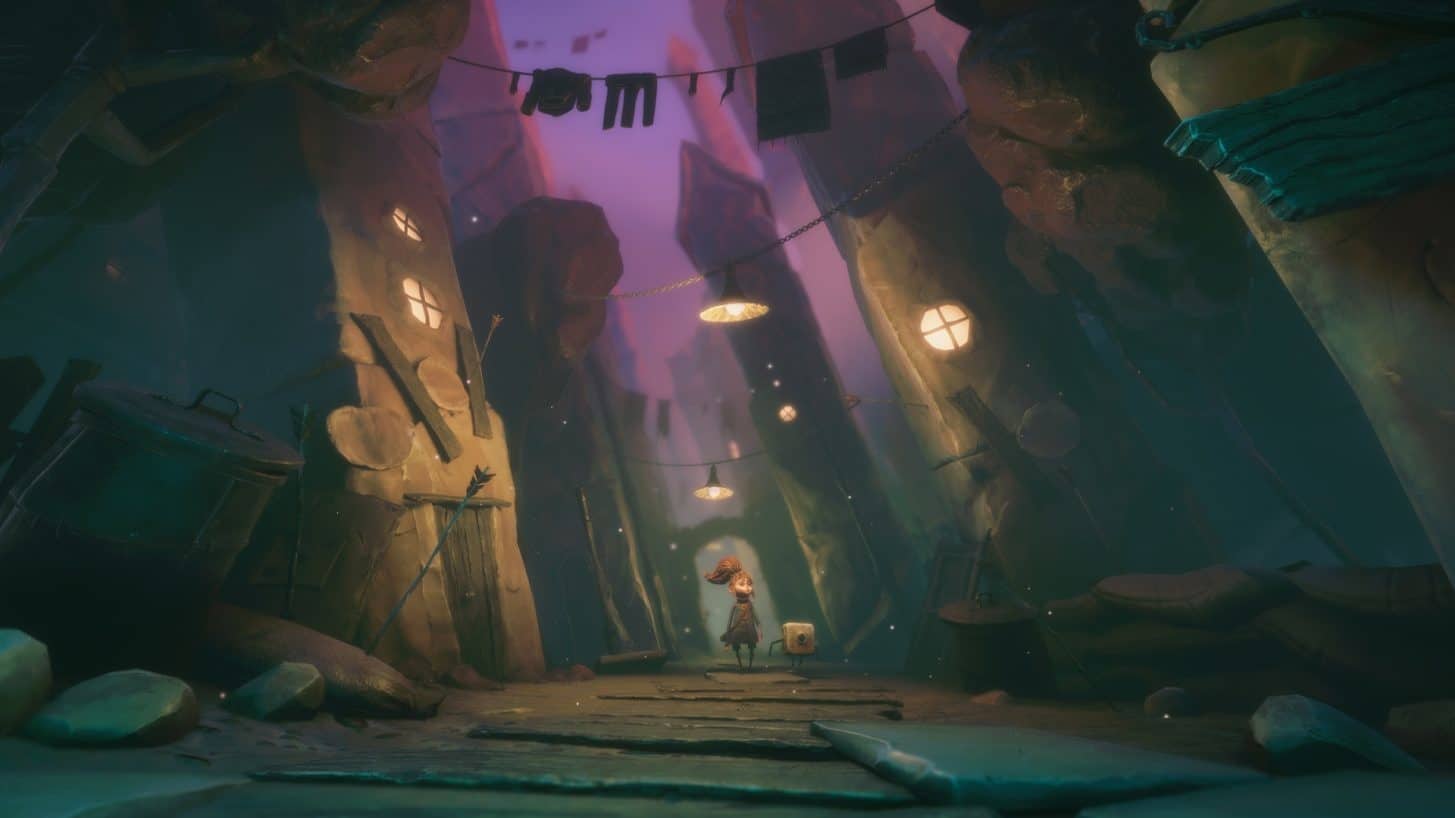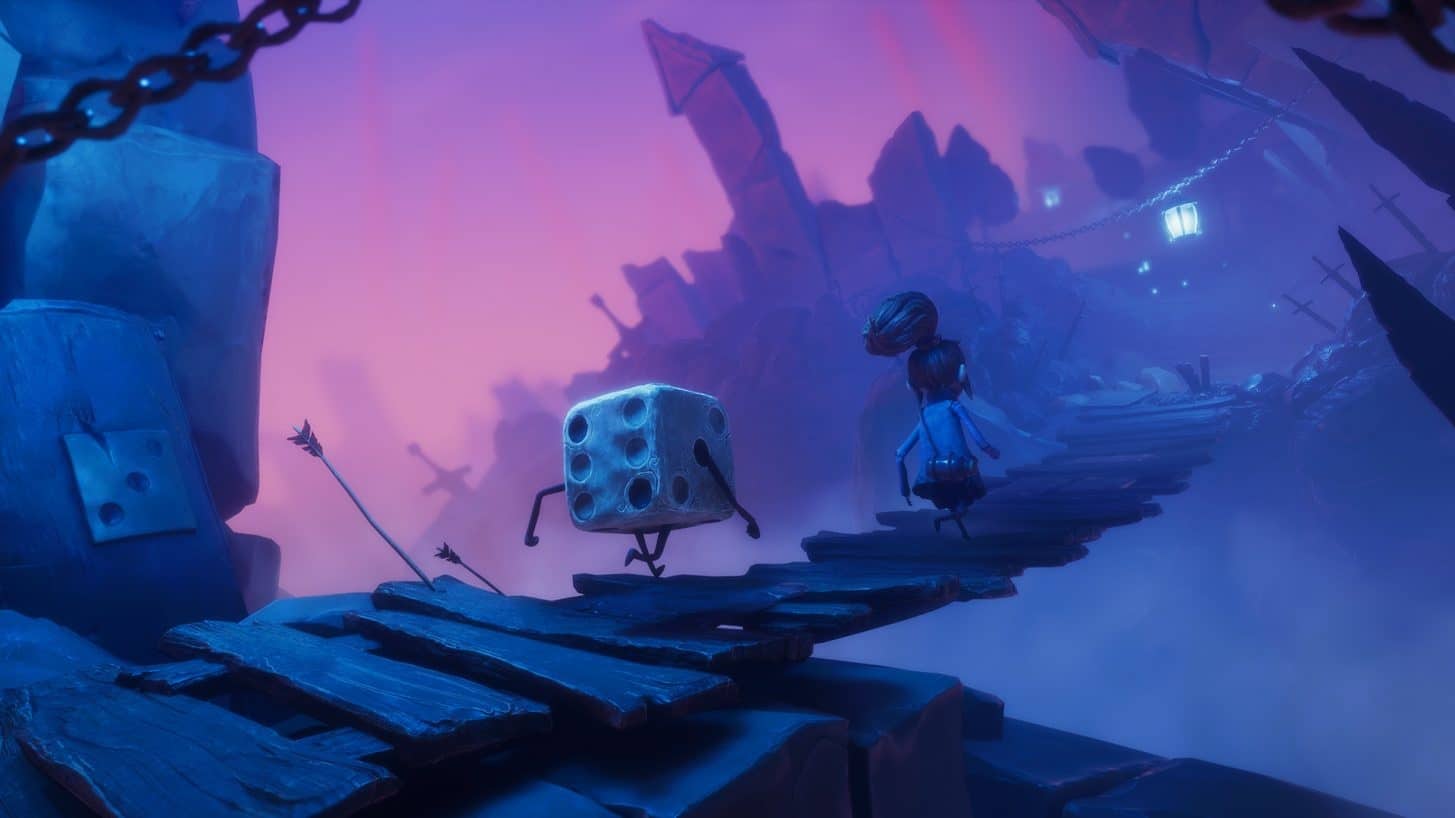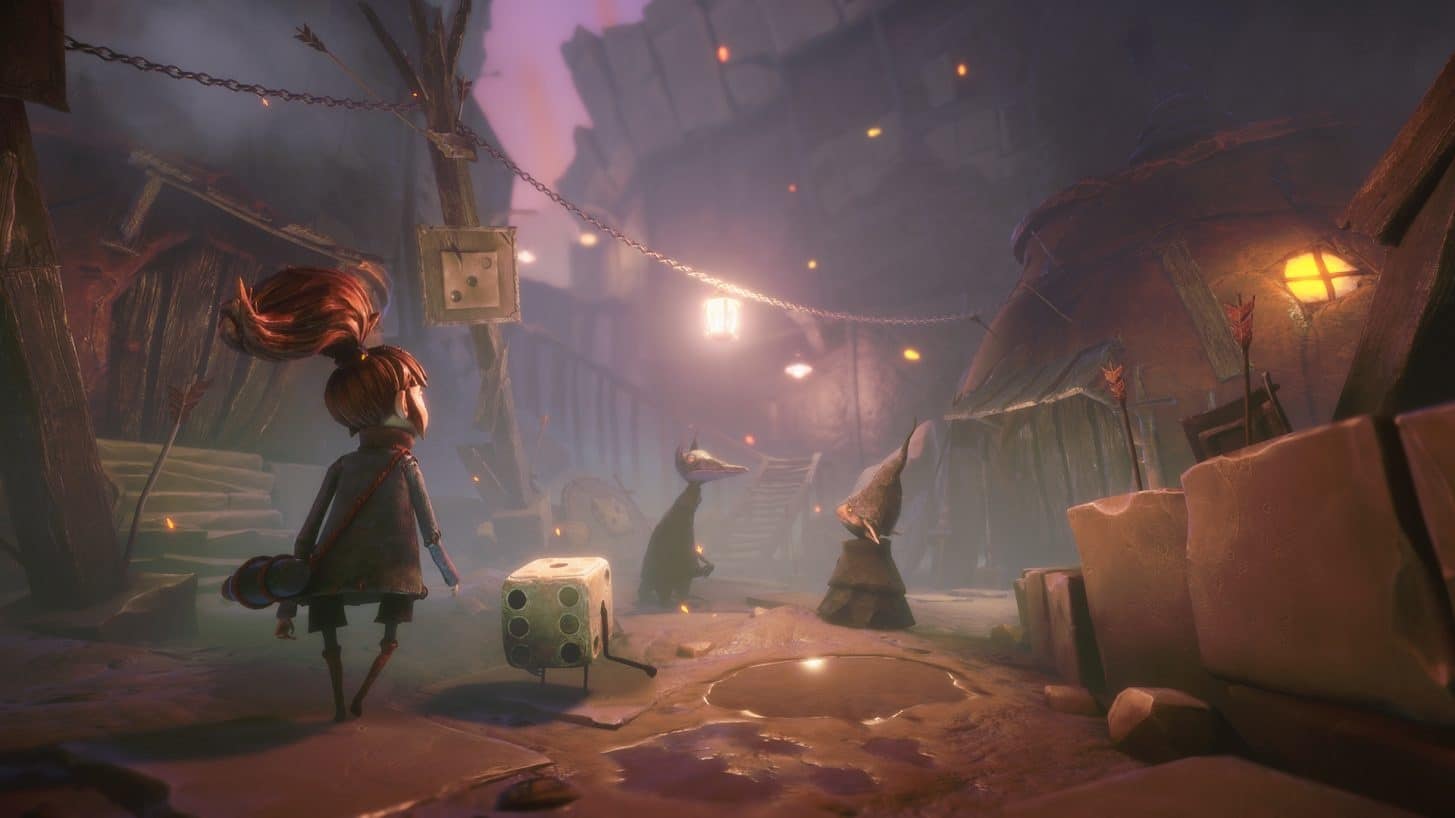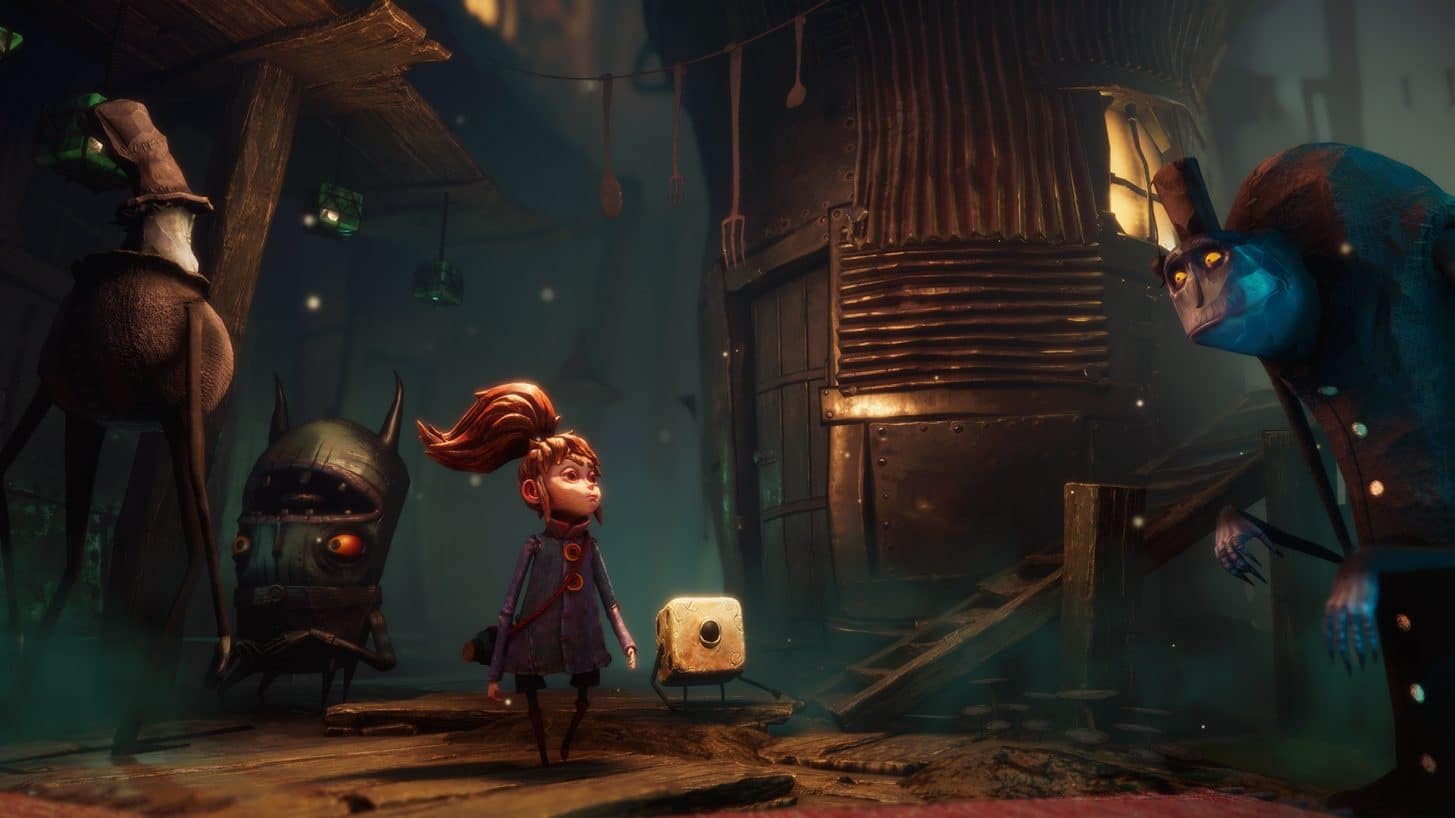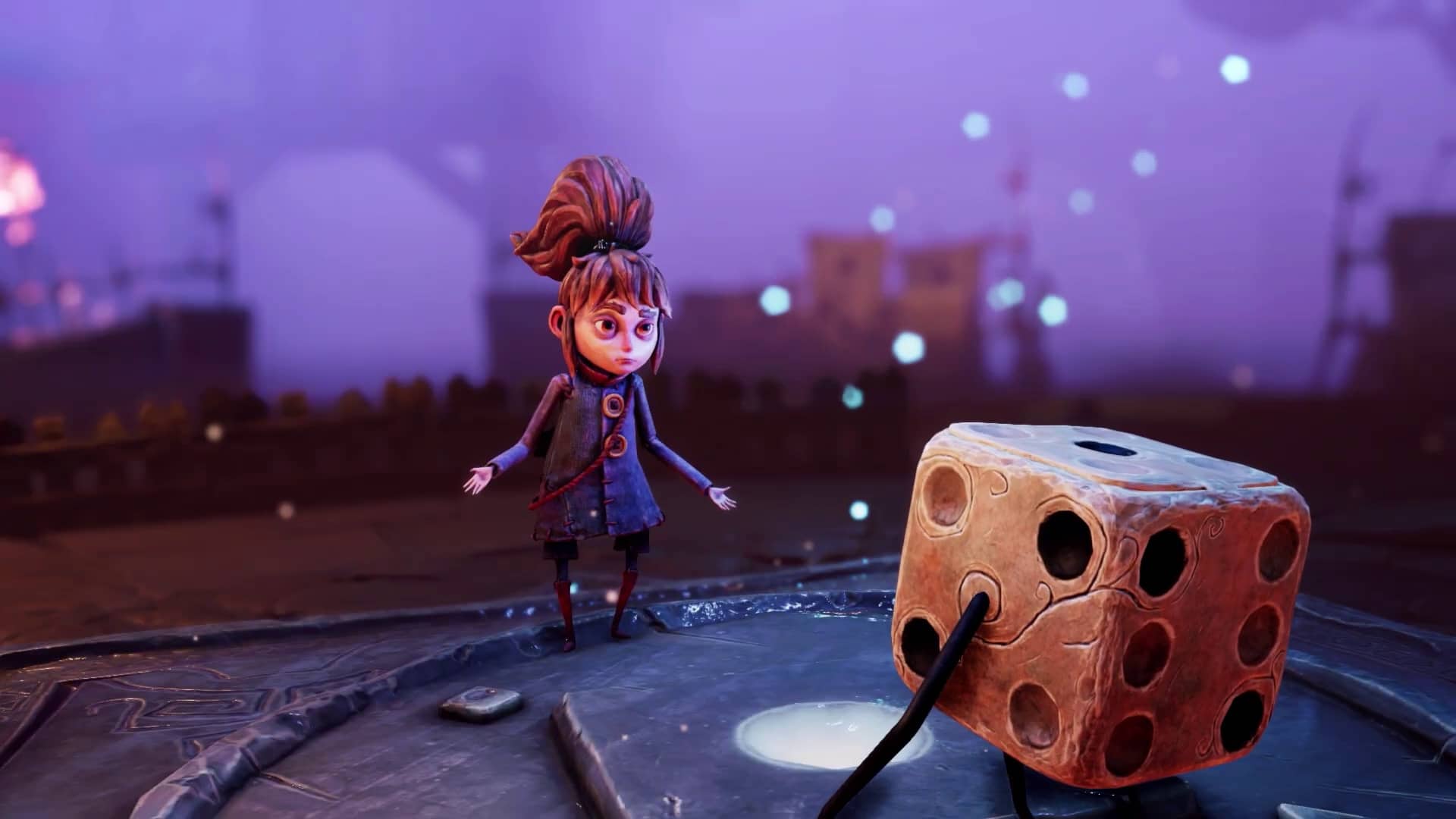Lost in Random borrows the style of Tim Burton’s “Nightmare Before Christmas”. Once all the presents are unwrapped, however, the shine diminishes.
Those familiar with director Tim Burton’s animated puppet films already know what makes Lost in Random tick. For Zoink’s single-player adventure takes place just as much under the backdrop of withered moorlands and windswept moonlit lanes populated by emaciated monstrosities. But the critters are at least as cute as they are morbid – and rarely more serious in dialogue than Monty Python films.
Just as idiosyncratic, but also brilliant, is the action adventure’s combat system. When the little heroine throws her companion – a magical game cube that is toddling around – she is allowed to draw ability cards from a pack of cards. This is how she gets weapons or magical helpers and can use them to turn skirmishes in her favour. However, the fairytale-like story lasts much longer than our motivation to fight. Why fans of a certain kind of game should give Lost in Random ( 93 percent positive on Steam) a chance, you can find out in the test, whose rating we definitely didn’t roll the dice on.
Purely random upper class
Lost in Random is set in a dinky gritty kingdom of six regions that sort of represent social classes. Thus, the ramshackle Einsfelden is home to the poor wretches, while in Sechstopia the nobility sips its morning chocolate.
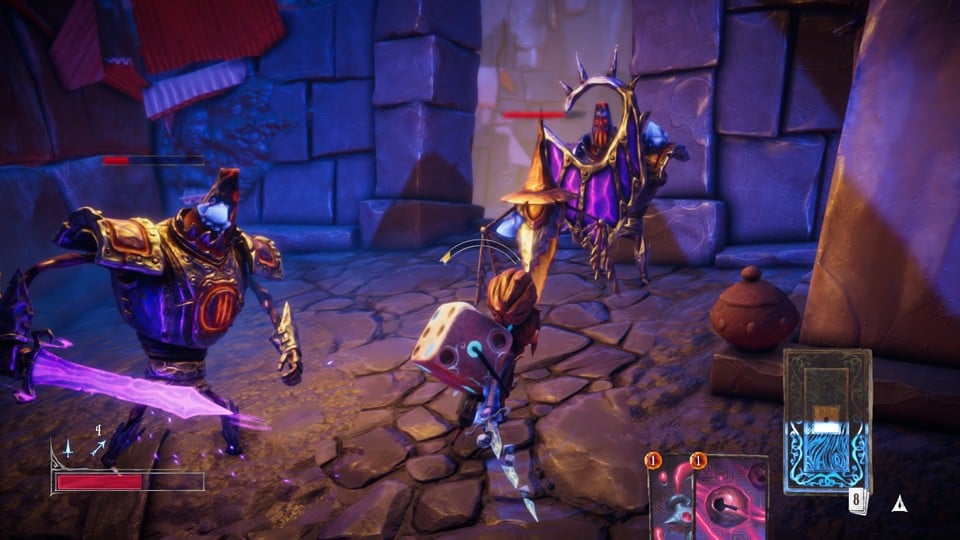
In Sechstopia also lives the power-hungry Queen, an evil witch with an owl-like stone mask over her face. On a resident’s twelfth birthday, she determines their social status by rolling the dice with her black knob. If they get a one, they go to poor Einsfelden, if they get a two, they go to the slightly better-off Zwei-Stadt, and so on.
Odd, the same-aged sister of the child heroine Even, has the dubious luck of rolling a six. At least with a little help from the nasty Queen. The inseparable sisters (Even is a “one”) do not like Odd’s forced move to Sixstopia at all. Moreover, Even has a feeling that her twin might be in trouble, so the raggedy girl with the thick ponytail sets out to find Odd in Sechstopia.
The witty story of Lost in Random is told in fairytale style by a fabulously atmospheric narrator, and the English dubbing of both the main and supporting characters is also convincing. What we got to read in the German subtitles, which are activated in accordance with the standards, didn’t knock our socks off in terms of content, but Lost in Random also only wants to tell a classic fairytale. Nevertheless, we were impressed by the sophisticated fantasy setting with numerous allusions to real social life.
The right map at the right time
Because the mischievous queen is indeed up to no good, she sets misshapen (and visually monotonous) henchmen on Even. On the ground, these are mostly abstract knight’s armour with monstrous contents as well as mechanical hermit crabs; from the air, screeching robot ravens with witch hats fall. Boss opponents come, for example, in the form of a potato sack with holes (Burton’s Oogie Boogie sends his regards) or a horror nanny in a steampunk battle vehicle.
Once Evens’ life energy is used up, she has to start the respective fight all over again. Since some of the confrontations drag on pointlessly, this can be quite exhausting. Free saving is forbidden, but a save-and-quit function is available.
The highlight of the spatially delineated combat is that from the third-person perspective we first have to shoot the crystals growing out of the monsters with a slingshot. The fallen splinters supply our passive fighting dice companion Dicey with energy, which he uses to mix up a deck of up to five ability cards for us.
As soon as we roll the dice with Dicey, time stops and we can draw one or more cards at the cost of energy. This gives Even a sword, bow and arrow, bombs or spells like a time bubble that almost freezes the enemies inside. But beware: weapons are consumed, so you have to roll the dice more often during the slashing and stabbing. Our deck of 35 cards expands as the game progresses, as we can buy new cards from the categories weapons, traps, attack spells and protection in Mannie Dex’s mobile cabinet shop. Last but not least, “cheat cards” reduce the energy needed to draw cards.
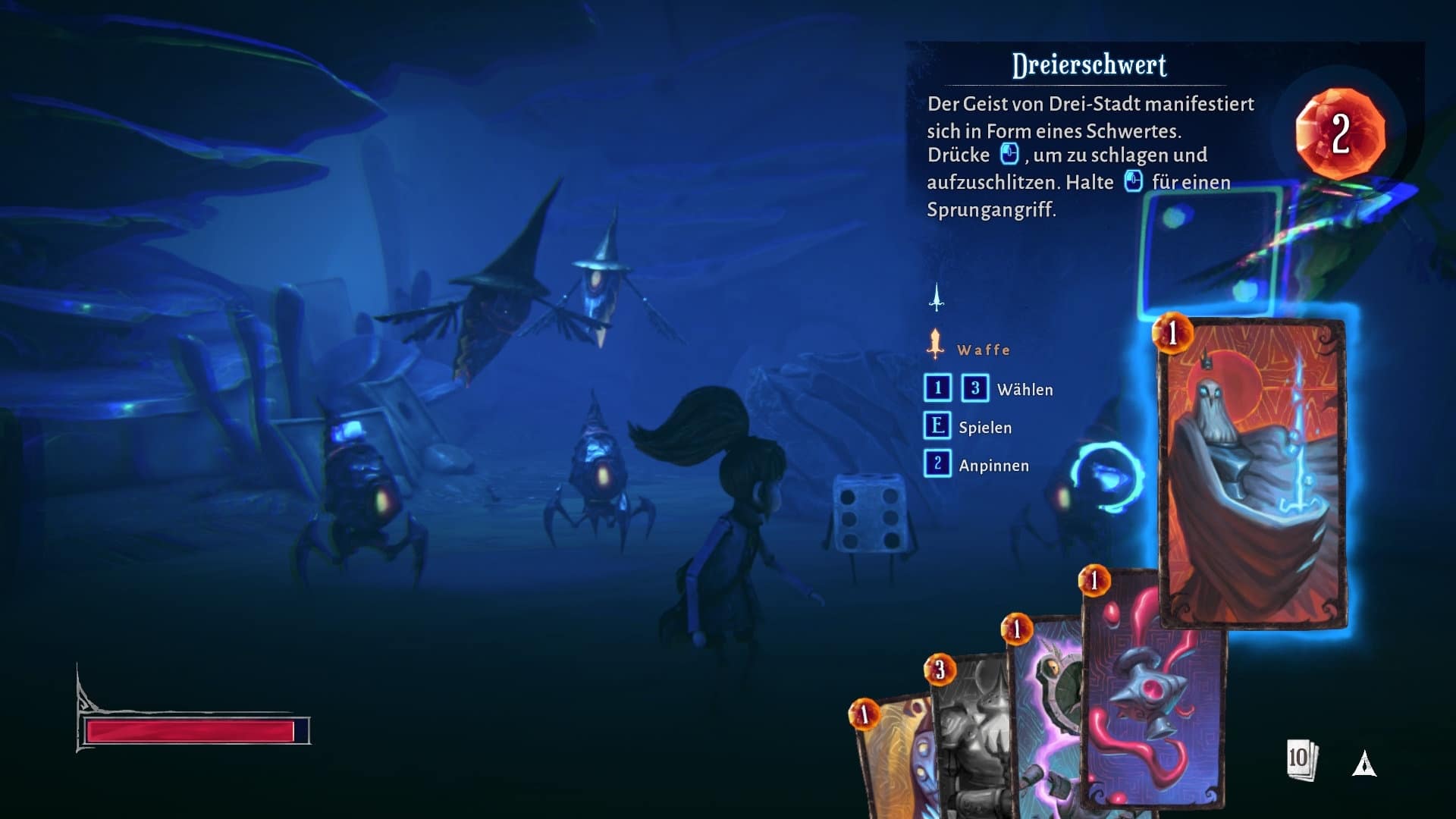
The fights are easy to sometimes challenging on the normal difficulty level, alternatively there’s a pipie-simple story mode. The brawls are fun thanks to the handy controls, and the thoughtful playing of cards brings tangible advantages. If you have mastered the blink-and-you’ll-miss-it manoeuvre and have quick reactions, the fights are even easier. In addition, boredom sets in when the pack of cards is completed after about six hours. All in all, we were on the move for ten hours; a decent playing time for the price of just under 30 euros.
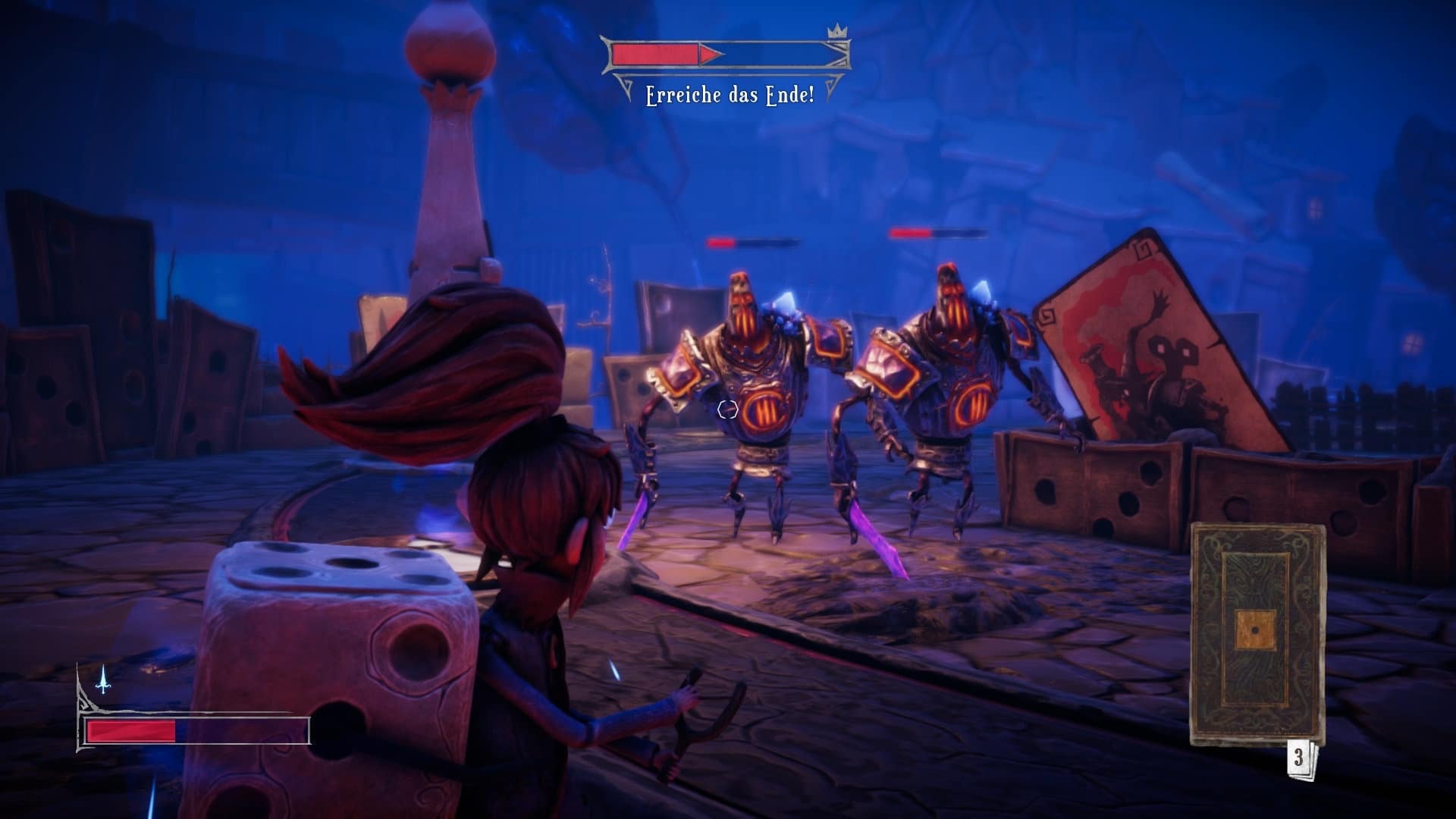
Random has problems
Apart from the arena battles, we steer heroine Even (limb cube Dicey wiggles merrily behind) gradually through the six regions of Randoms. Each of them consists of a manageable creepy city and its sublevels, including tubularly designed catacombs. Each city has its own problems that we have to solve in order to progress. To do this, we talk to many characters from the cabinet of curiosities, who with their scrawny extremities and rotting (animal) visages could have sprung straight out of “Corpse Bride” and the like.
Small side missions sometimes take us to places like a city harbour shrouded in gloomy blue, where we have to evade pink searchlights. We would have liked to move a little more freely through Random with Even, especially since the cleverly placed story triggers could not disguise the strictly linear course of events. We disliked even more that there was almost nothing to do in the dark alleys of the realm except for conversations.
Lost in Random looks like a performance of the Augsburger Puppenkiste after the Third World War, because at least atmospherically everything here is really sick and broken. At the same time, the action adventure exudes the childlike charm and wit of the Tim Burton animated films without soullessly emulating them.
Editor’s Verdict
As a fairy tale lover and fan of Burton’s animated films, Lost in Random immediately charmed me. It’s set in one of those cute, dark worlds where after ten minutes you just want to cuddle in the round – including the brilliant narrator, even if he sometimes almost jokes himself to death. The battle system fits in coherently, only the board game arenas I found a bit disappointing. I would have preferred to roll the dice with Dicey to get my chess piece into the goal; occasionally, opponents could have pulled my pigtail for my sake.
But that’s still complaining at a high level; the real turn-off for me were the narrow level tubes. It’s difficult to dive into a world that doesn’t let me explore anything far from the (narrow!) main path. On top of that, Random’s dark alleys and paths are just crying out to be left. Too bad, but under these circumstances I probably won’t visit the realm of chance again.

